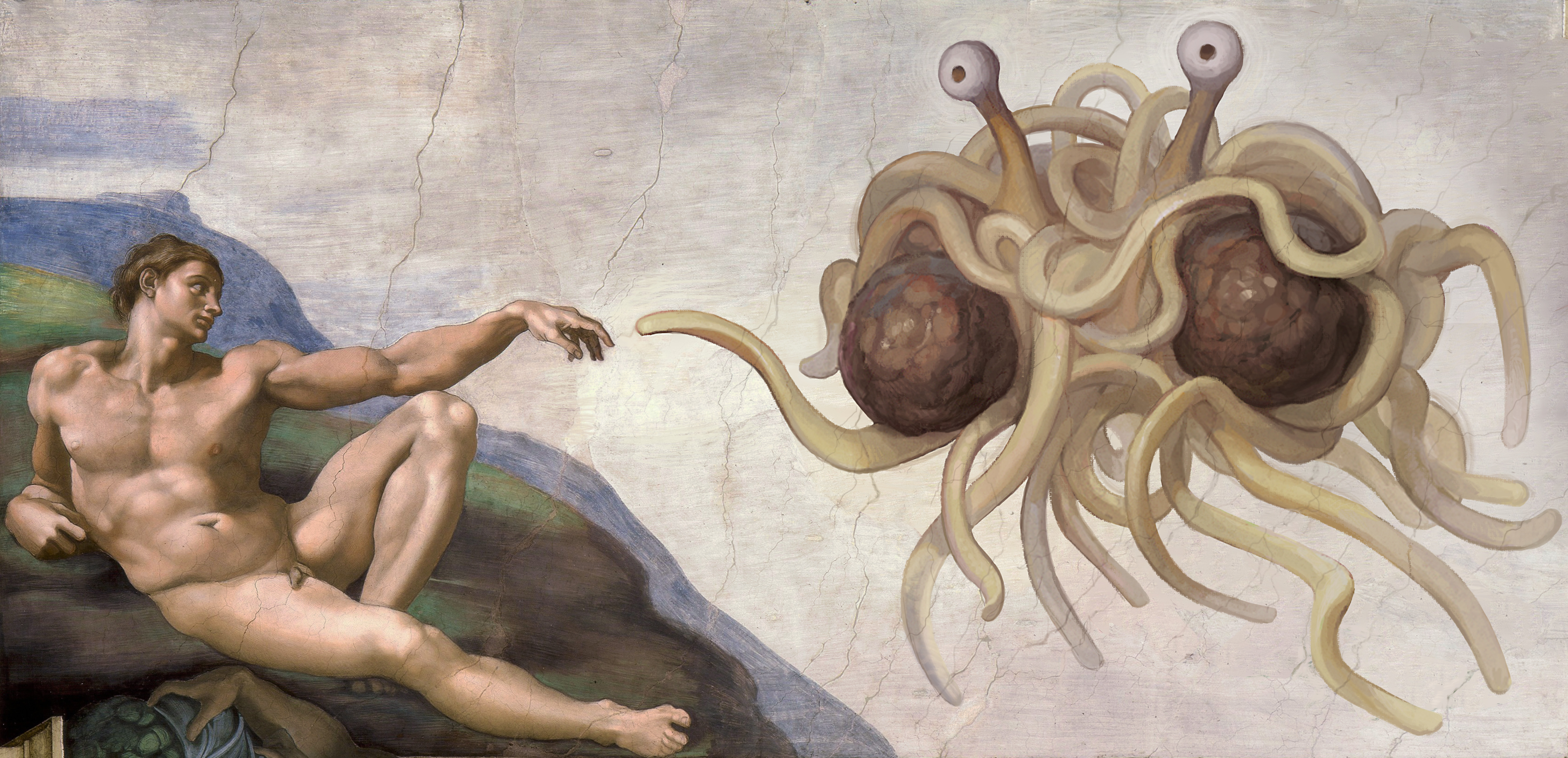
The spoof religion known as the Church of the Flying Spaghetti Monster was started to parody creationists and challenge establishment churches in Europe but is now taking on the shape of a religion itself reports the Atlantic (October). The parody religion, also known as the Pastafarians, started in the U.S. amidst the battle over teaching evolution and creation in the public schools in 2005, arguing that one couldn’t prove there wasn’t a flying spaghetti monster, just as creationists argued that it couldn’t be proven that a supernatural being hadn’t created life. Since then, the semi-parodic Pastafarians have established Facebook pages throughout Europe and have waged and even won legal battles for the privileges enjoyed by other religions. But “along the way, something funny has happened to a movement founded in large part to critique organized religion; it’s gotten organized and has taken on both the trappings and some of the social functions of a religion,” writes Kathy Gilsinan.
The flagship FSM church in Germany now features a weekly mass modeled on the Catholic celebration, but with noodles and beer in place of bread and wine. FSM officiants even conduct weddings in several countries, with New Zealand becoming the first country to recognize these marriages legally. FSM has its own iconography—a deity with spaghetti and two meatballs and a pair of eyes—as well as a Friday Sabbath (because “our god was faster than the other gods, and he finished with the creation of Earth earlier”), and participants donning pirate costumes and celebrating with beer. In Russia, “where the church is particularly active, eight Pastafarians were detained for holding an unauthorized ‘pasta procession,’” Gilsinan adds. Douglas Cowan, who studies parody religions, says that FSM’s guiding idea is that “nothing is inherently sacred; it’s sacred by virtue of the fact that people agree that it’s sacred.”
